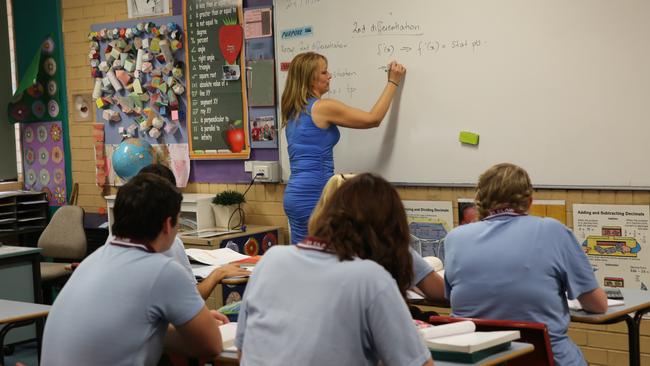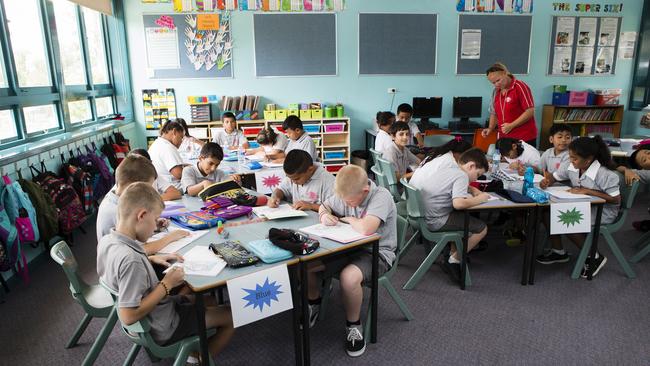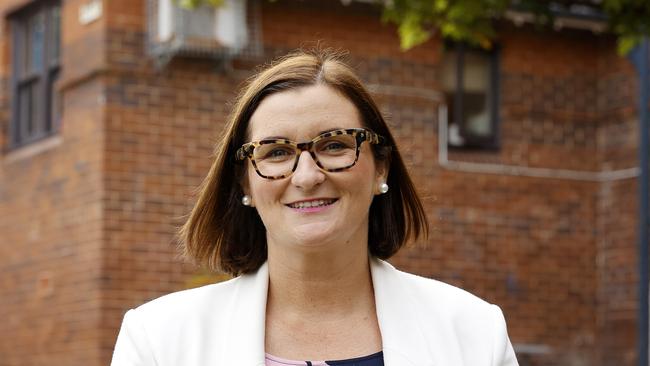Thousands of classrooms to qualify for extra ventilation
Kids in NSW classrooms will soon breathe a little easier, with a seven figure cash splash to upgrade ventilation across public schools.
NSW
Don't miss out on the headlines from NSW. Followed categories will be added to My News.
THE state government will pump $100 million to install special ventilation systems in public schools in a bid to winterproof them against future cold and flu seasons.
But the benefits of increased airflow circulation won’t be felt in schools until winter next year while experts say the focus now should be on installing carbon dioxide monitors so teachers can open windows when ventilation levels get too low.
Education Minister Sarah Mitchell said the ducted systems would be used in 10,000 public school classrooms after 2000 classrooms have fitted with better ventilation measures including ducting and exhaust ventilation.
“The NSW Government is committed to keeping students learning face-to-face at school and is taking steps to ensure that we maximise fresh air in our classrooms,” Ms Mitchell said.
“Installation of these systems will further enhance the quality of air in our classrooms.

“The World Health Organisation, the Doherty Institute and NSW Health agree that maximising natural ventilation in classrooms by opening windows and doors remains the most effective method for minimising the spread of Covid-19 – and this is the foundation of our approach in schools.”
A press release from the Minister said the ducting was part of a suite of measures taken “ahead of winter” but a spokeswoman later clarified the ventilation ducting was due to be installed ahead of winter next year.

International Laboratory for Air Quality and Health director Lidia Morawska said she would be surprised how much progress could be made on upgrading existing airconditioning and installing ventilation systems about 40 days out from the start of Winter.
“I can‘t imagine that 10,000 can be retrofitted with ducted systems before June, it would be very surprising if this was possible,” she said.
She said ventilation systems would be valuable for years to come by stopping children from getting sick from a whole range of respiratory diseases in winter.
In the meantime, she said schools should be more focused on installing carbon dioxide monitors in classrooms, which are the best measure of how well ventilated a room is.

“In the first instance, the most important thing is to have cO2 meters, because without that, you don‘t know what the extent of the problem is,” she said.
“If you enter a classroom, how do you know if ventilation is sufficient? Then if there is a problem, you can address the problem by opening the windows or some other action.”
The 10,000 classrooms earmarked to receive ventilation systems is on top of 2000 classrooms announced last November as set to receive them.
Other measures to be rolled out as part of the program include upgrades to windows, ceiling and exhaust fans and 19,000 air purifiers.
A $500 million airconditioning program dubbed “Cooler Classrooms” announced with much fanfare in 2018 saw numerous schools waiting years to get airconditioning installed.
Refrigeration and Air Conditioning Contractors Association president Kevin O’Shea said the ventilation program was unlikely to see such long delays because ventilation installation was somewhat of a simpler task.
“10,000 is a lot of rooms but there are a lot of organisations already involved in schools who can then subcontract to major companies to carry out their services,” he said.
“There are quite a few organisations on their list of contractors.”
More Coverage
Originally published as Thousands of classrooms to qualify for extra ventilation




